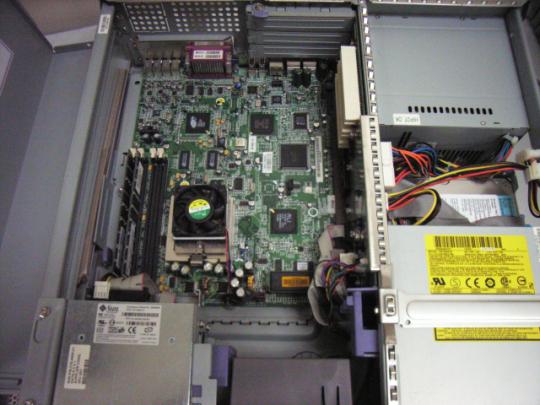This is the first and ongoing phase (as of Mar. 2014). While the main purpose of Sköll is to generally get the original source to compile on Solaris (v8) it also has several sub-tasks:
Compile the original source
Several makefiles needed some adjustments to work with gcc (instead of suns own cc), also some tricky formatting f*ck ups needed to be corrected – (gnu)make is much more picky about this than whatever make they used back then.
Strip unnecessary parts
It’s not identified which parts are completely unnecessary, but the TI DSP code is something which can definitely go.
Other points might need to be discussed, e.g. what should happen to some very special servers (i.e. Terminalserver in Helios lingo) like SUN3 or ACORN R140?
Smoothing the edges
There are multiple strange code-constructs which should be cleaned – they lead back to buggy and awkward MSDOS compilers which needed some workarounds
Here are some examples:
The code is full of #define eq == defines. I was told that was a workaround for the “==” vs “=” issue in conditional expressions. Modern compilers warn you when a condition looks like an assignment, the Microsoft compiler they were using at the time didn’t.. Doh!
Then there’s #define elif(x) else if(x). WTF!? Well, this roots from BCPL, the ancestor of C. Most of the core-devs at Perihelion studied at Cambridge University where BCPL was invented and was used well into the 1980s. In addition to the standard if() and while() constructs, it also had unless() and until() statements, as well as elif().
To them used to these constructs, the code was more readable and boy, they do get used throughout the Helios sources way too much.


